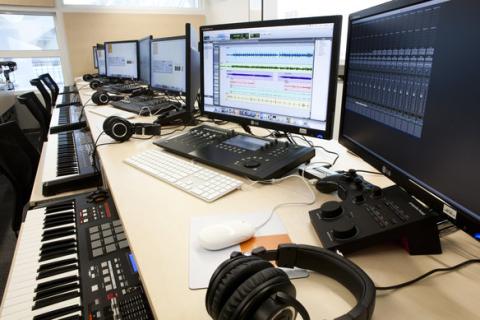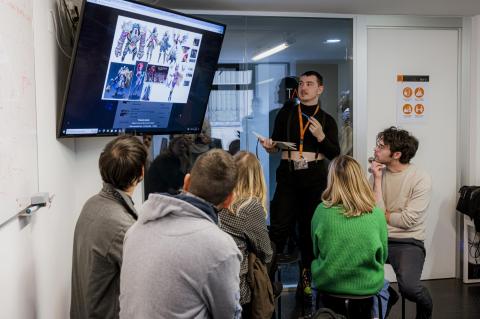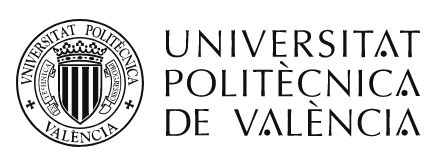Visual media is everywhere, from full-length feature films and television to web series and immersive video games. Whether you see it on an IMAX screen or a smartphone and whether you hear it in 7.1 surround sound or on a pair of earbuds, the experience is enhanced by the accompanying music. The craft of creating this music has become one of the world’s most desirable careers.
This one-year intensive master of music degree focuses on the art and craft of composing, orchestrating, editing, and producing music for the screen using the latest technology. Students lead recording sessions with professional session musicians and receive in-depth instruction in narrative analysis, orchestration, and the use of dramatic effects to support the story.
Creation of your own sound libraries

Live recording sessions with professional musicians

Live remote recording sessions with the Budapest Art Orchestra

Live recording of your final project in London with a full orchestra

Program Highlights
Direct and Remote Recording Sessions
Several times throughout the year, students record their compositions on our scoring stage with professional session musicians from the main orchestras in Valencia. Students also participate in remote recording sessions with orchestras such as the Budapest Art orchestra, connecting with the studio team and the orchestra online, which is an increasingly popular way to record music in the digital age. The final project of the year includes a recording session at a major studio. In the past, students have recorded at Air Studios and Abbey Road Studios in London.

The Latest Technology
In today’s fast-paced industry, advanced technical skills are just as significant as musical and creative abilities. Students become proficient users of the latest hardware and software in our tech labs and studios, where each station contains an Apple Desktop Computer, DAW Controller, Midi Keyboard, Sound Card, and Video Monitor(s). Up-to-date software is installed at each station, including Pro Tools, Digital Performer, Logic, Cubase, Vienna Ensemble Pro, Dorico, Finale, and Sibelius (with Note Performer), each with a wide range of sample libraries and plugins available.

A Real-World Working Environment
Students leave the program with excellent working knowledge of industry workflows and processes. Projects are assigned in the same way that composers are hired in any real-world situation – including quick turnarounds, demanding producers, and the necessity to compose in a wide range of styles and genres to meet meticulous requirements. The recording sessions, both direct and remote, provide students ample experience in writing for different sized orchestras, including a full 50-piece orchestra.
Program Information
Location
Berklee College of Music, Valencia Campus:
Palau de les Arts Reina Sofía - Anexo Sur, Avenida Profesor Lopez Piñero, 1
46013 Valencia (Spain)
Language
English
All classes are taught in English
Class Registration
During orientation week (Monday, August 26–Friday, August 30, 2024)
Students will meet with their program director and/or their academic advisor during Orientation Week and will register for classes following that meeting.
Academic Committee of the Degree
- Simone Pilon, Executive Director, Berklee Valencia
- Lucio Godoy, Program Director of Master of Music in Scoring for Film, Television, and Video Games
- Raúl Terol Bolinches, Universidad Politécnica de Valencia
- Alfons Conde, Associate Professor
- Martina Naretto, Senior Coordinator for Academic Assessment, Records, and Registrar Services
- Student Advisory Representatives 2024-2025:
- Patricio Avila
- Natalia Chatzopoulou
Number of places available
30 seats
Up to 30 students can take part in the Master of Music in Scoring for Film, Television, and Video Games program each year
Culminating Experience
Scoring for film, television, and video games students are required to complete a culminating experience that serves as both a practicum and a bridge to the professional world. The tangible end product of this experience will take the form of an original score, scholarly paper and/or research project, or other enterprise that offers an original solution to the challenge of marrying music to visual media, specifically, film, television, and video games. You will work in consultation with your faculty advisor and/or the program director to develop your project, the goal of which is a professional outcome. A culminating experience committee evaluates the final project that results from the culminating experience.
Culminating Experience Timeline
- Semester One: Students propose their culminating experience to their advisor and program director.
- Semester Two: Students revise and refine their proposal and get final approval from their advisor.
- Semester Three: Students complete and present their final project to the culminating experience committee.
CE Defenses
- June 5–9: Rehearsal presentations and definitive committee selection.
- June 19: CE documents submission (outcome and reflective).
- July 1 and 2 of 2024 final presentation.
Culminating experience schedule
Culminating Experience Jury
Alfons Conde
Lucio Godoy
Vicente Ortiz Gimeno
External Jury (chosen by the student)
Accreditation
All graduate programs at Berklee are accredited by the New England Commission of Higher Education (formerly the Commission on Institutions of Higher Education of the New England Association of Schools and Colleges, Inc.), which is internationally recognized as an authority on educational quality.
The Master of Music in scoring for film, television, and video games is additionally accredited by Spanish educational authorities. Berklee College of Music's Valencia campus (Berklee Valencia), the authorized center of higher education in arts, imparts this program under affiliation with Universidad Politécnica de Valencia (UPV) and it is valid throughout the European Higher Education Area (EHEA). Please visit the accreditation section for further information. Berklee Valencia is a Centro Superior Autorizado de Enseñanzas Artísticas de la Música, Código del centro: 46061691 (Authorized Higher Education Center for Artistic Music Education) in the European Higher Education Area, officially recognized as such by Resolution of the General Director of Universities, Higher Studies and Sciences no. 6844, dated August 8, 2012. [DOCV no. 6844, 08.21.2012, SPAIN].
We encourage all prospective students to carefully research degree recognition requirements in their home country or the country where they intend to work.

Accreditation reports
For accreditation reports and further information please click here(Opens in a new window)(Opens in a new window).
Graduation Requirements
On-campus graduate programs are designed to be completed in three semesters of full-time study or one full academic year—a consecutive fall, spring, and summer. The full-time summer term is six-to-seven weeks in length directly following the spring semester.
All students are expected to be in residence for the entire program (three academic terms). Furthermore, all candidates seeking to graduate must earn a minimum letter grade of B- in each course counting towards a degree requirement, attain a minimum GPA of 3.00, and complete all course work, the culminating experience, and other graduation requirements.
